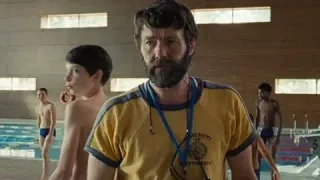February 19, 2025
Antonio Sisca is Switching his Positions for Us
Andrea Marks Joseph READ TIME: 1 MIN.
"Anyone feeling stiff? I can help." Now, Antonio Sisca is well aware that he's gonna have more people feeling a different kind of stiff after watching this video, but we thank him for such a generous offer, because it's clear that he really, truly can help us with working out any kinks... or uh, tightness... we may be experiencing. While it's all very sensual and seductive, we also admit to laughing out loud at the comment saying "When they tell me: act normal, here comes the one you like."
The wildly flexible performer, whose Instagram bio describes himself as a dancer, aerialist, acrobat, and ice skater, shared a follow-up post, providing more stretching in those tight sheer white leggings, at the request of his followers.
In another post, Sisca switched to a darker pair of skintight leggings and stretched even more deeply, arching his back while he moved around his apartment at night. Here, he offered up a special prize to his thirsty, uh... tense followers: "I'm choosing one person from the comments for a free stretching session with me."
Such a generous guy! Antonio Sisca's used his Instagram account as a platform to share this deeply sexy video of close-ups on his abs, and he's even offered to provide a... shall we say... "personal touch" to your coffee when he forgets to bring cream for his romantic breakfast.
Scroll down for more thirst traps from the super flexible, super sexy dancer.






